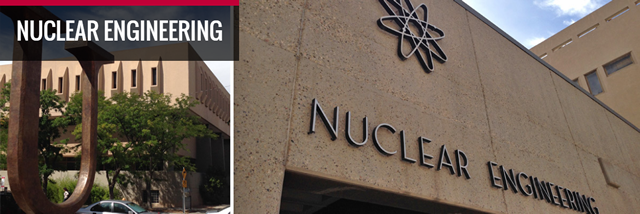
Nuclear Engineering ETDs
Publication Date
12-16-1994
Abstract
The effect of capillary pressure, solubility, and surface chemistry on agglomeration of silica and titania particles during drying was studied. Three batches of silica particles with diameter between 15 and 500 nm as well as titania particles with nominal diameter of 30 nm were used. Drying rate was varied by using both tray drying and spray drying. Aprotic solvents ranging in surface tension from 18 dynes/cm (hexane) to 72 dynes/cm (water), and mixtures of water/propanol and water/butanol ranging in surface tension from 35 dynes/cm to 72 dynes/cm, were used to vary the surface tension of the solvent. Water between pH 2 and pH 11 was used to vary the solubility of silica in water, and the electrical double layer around the particle was varied by addition of 0.001 M KCI. The initial solids content of the slurries was varied between 7.0 to 21.0 wt % silica. Agglomera1te strength and strength distribution after drying and re-dispersing was measured using a calibrated ultrasonic field. The surface groups on the silica surface were identified using infrared adsorption and 13C NMR. The change in particle morphology of the spray dried powders was determined using SEM, nitrogen adsorption, and 29Si NMR.
The strength of the agglomerates formed during drying was found to increase with increasing solvent surface tension, and increasing solubility of the particles, while it was found to be inversely proportional to the particle radius. The strength of agglomerates was also found to be slightly higher for slurries having a lower initial solids content. Slower drying rate was also found to increase the strength of the agglomerates. It was concluded that the capillary pressure (Pc=2yCos(θ)/ rp) during drying and solubility of the particle into the solvent are important parameters which affect the strength of agglomerates.
Document Type
Thesis
Language
English
Degree Name
Nuclear Engineering
Level of Degree
Masters
Department Name
Nuclear Engineering
First Committee Member (Chair)
Douglas M. Smith
Second Committee Member
Gabriel P. Lopez
Third Committee Member
Abhaya Datye
Fourth Committee Member
Martin Weiser
Recommended Citation
Maskara, Alok. "Agglomarate Formation During Drying Of Fine Powders." (1994). https://digitalrepository.unm.edu/ne_etds/108


